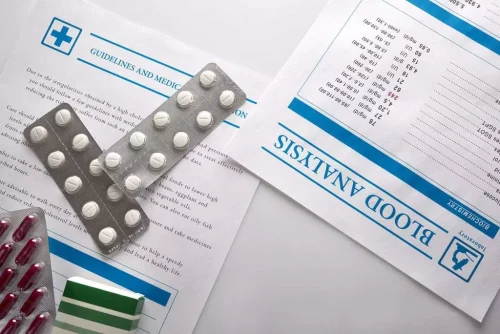
Sometimes, however, a blood clot can appear in an artery that supplies your heart or brain with oxygen-rich blood. When a clot blocks blood flow to your heart, it can cause a heart attack. If it blocks the blood flow to your brain, it can cause a stroke. The use of blood thinners in this group of patients is common. Alcohol consumption can lower plasma fibrinogen levels, a protein essential for blood clotting, potentially reducing the risk of heart attacks and strokes but increasing the risk of bleeding. Research suggests drinking alcohol may thin the blood by affecting platelets, which are the parts of blood that initiate coagulation, or clotting.
STAT Plus: Health Care’s Colossus: How UnitedHealth turned a questionable artery-screening program into a gold mine
More research is needed about whether red wine is better for the heart than other types of alcohol, such as beer or hard liquor. Always consult your healthcare provider to ensure the information displayed on this page applies to your personal circumstances. Alcohol can increase your risk of stomach bleeding caused by aspirin and other NSAIDs. Some healthcare providers recommend against alcohol ingestion completely while taking warfarin.
- Pregnancy, cancer and estrogen therapy can also put you at a greater risk of forming a clot.
- Different anticoagulants work at different parts of the coagulation process.
- Combining these drugs with antiplatelet or anticoagulant drugs may also increase your bleeding chance.
What To Avoid When Taking a Blood Thinner

Yet there are other, less risky ways to protect your arteries — for example, by eating a plant-based diet and exercising. The American Heart Association doesn’t recommend drinking alcohol solely to protect your blood vessels and improve your circulation. But sometimes, a blood clot can form in — or travel to — an artery that supplies your heart or brain with oxygen-rich blood. Excessive long-term alcohol intake can contribute to blood clot formation by increasing platelet levels and activation, leading to a higher likelihood of clotting.
Treatment for alcohol use disorder
Alcohol contains empty calories, and when a person drinks, they may replace nutrients with alcohol. Alcohol may then raise the level of triglycerides, or fats, in the blood. Over time, the elevated calorie intake related to alcohol consumption can lead to obesity, a higher risk for developing diabetes, high blood pressure, and heart failure. Binge and heavy drinking may cause a stroke or sudden cardiac death as well.
What if I can’t stop drinking alcohol?
Instead, if you have high blood pressure, it’s best to avoid this tea and look for one prepared with anise seeds instead, which yield a similar flavor without the contraindications. The study authors noted this association was not seen in people who drank frequently but not heavily. Antihypertensives decrease heart rate and relax the blood vessels.
The AHA estimates the typical calorie content of wine at 100 to 150 calories per glass. When you have a couple glasses at night or even a few glasses during a week, that can add up quickly. If you’re watching your weight, keeping a food and drink diary is the best way to determine whether you can have that glass of wine and blood thinners wine without having to let your belt out a notch. Drinking less (or not at all) will always be better for you than even moderate drinking. It can take your body some time to adjust when you stop drinking, but a solid one-month detox should lead to better sleep, improved skin, and fewer stomach issues, for starters.

Alcohol’s Effect on High Blood Pressure Medicine
Alcohol, or ethanol, is a substance that is found in beer, wine, and liquor. Clinical studies have shown that alcohol can also thin the blood by reducing levels of fibrinogen, another protein involved with blood clotting. One study found that high levels of alcohol consumption, or around two to three drinks per day, reduced fibrinogen levels by 14%. Several studies have been published that link heart health with red wine, as Mayo Clinic reports that a daily glass of red wine may have certain health benefits. When alcohol is included in the mix, it can alter how thin your blood is and also change how active the medication is.

For some people, the effects of alcohol on the blood clotting process may be more pronounced and may last longer than others. The net effect is that drinking alcohol increases the risk of bleeding and makes it more difficult for your body to stop bleeding when you experience an injury. The bark of this tree has been used as an aphrodisiac and to aid sexual performance.
- Some research suggests vitamin D may affect how a person’s body reacts to warfarin, an anticoagulant drug, and there may be a link between low vitamin D levels and various cardiovascular diseases.
- Taking Xarelto can increase the risk of bleeding if you also have severe liver disease.
- Consuming alcohol leads to a lower number of blood platelets because the substance hinders the bone marrow’s ability to produce these cells.
- Limit alcohol intake to no more than 6 glasses of wine a week.
- When blood clots form in the body, they block normal blood flow from reaching tissues, and can cause tissue death, such as in heart attack, stroke, and pulmonary embolism.
- There are a number of factors that determine how dangerous alcohol consumption is while taking blood thinners.



Leave a comment